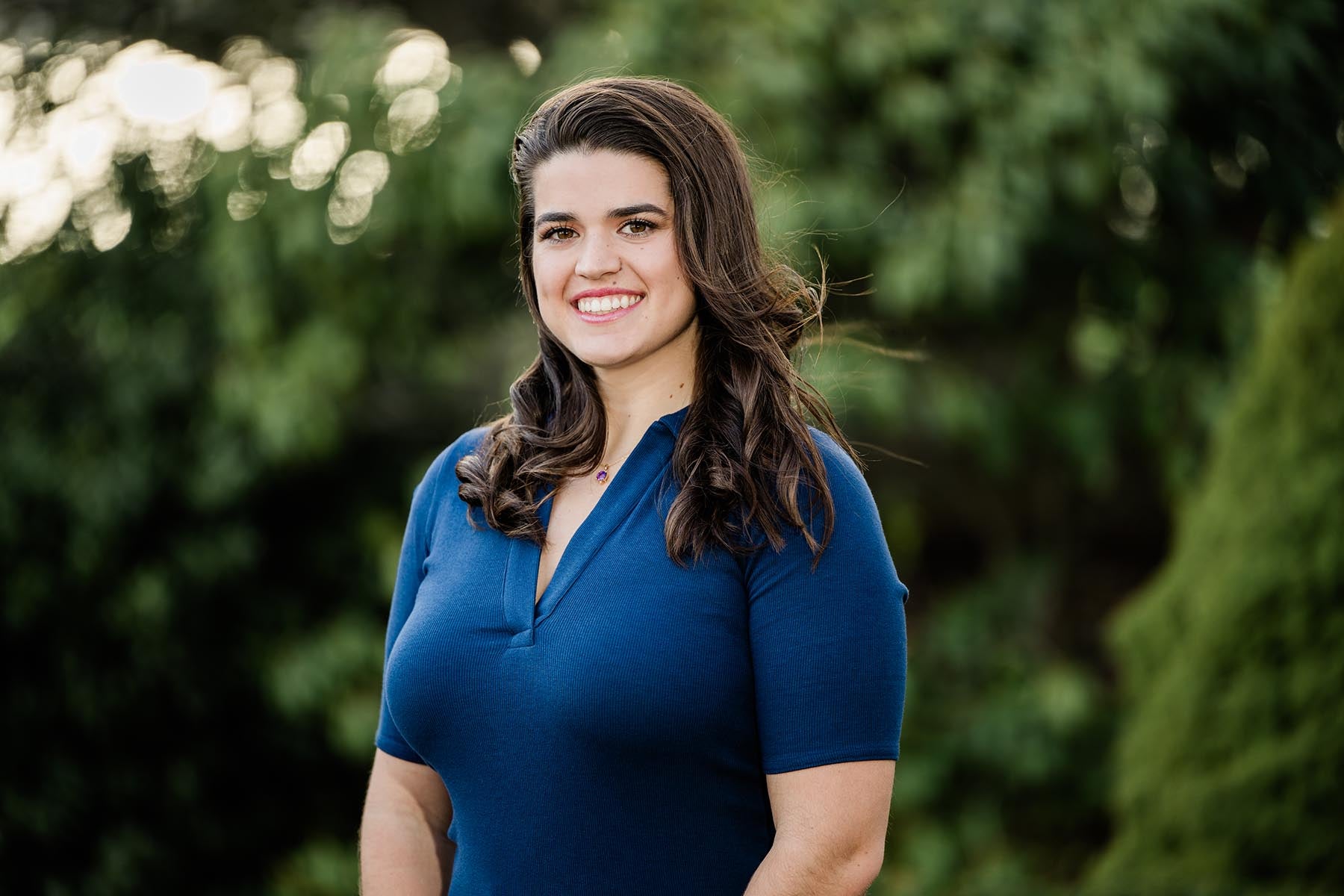Kaitlyn Fucillo, who graduated from the University of Rhode Island in May with degrees in ocean engineering and marine biology, had always been drawn to the ocean and imagined herself being a marine biologist as a child. As she grew older, she discovered a love for math and robotics, which shifted her interests toward engineering.
The South Hamilton, Massachusetts native interned at the plastics engineering consulting firm TESco her junior year of high school. “That experience was transformative. Larry Thatcher, the company president, not only introduced me to the practical world of engineering but also modeled what it looks like to follow your passions and bring ideas to life,” said Fucillo.
From hands-on work to problem-solving challenges, she found herself completely engaged. Before that internship, engineering hadn’t been on her radar—but after, she knew it was the right path for her.
When it came to selecting a university to pursue engineering, URI stood out because it uniquely offered a dual major in marine biology and ocean engineering. “It offered a perfect blend of my longtime passion for the ocean and my growing interest in engineering,” said Fucillo. “I recognized early on how valuable it is to approach engineering problems with a deep understanding of biological systems, especially when designing solutions for delicate marine environments.”
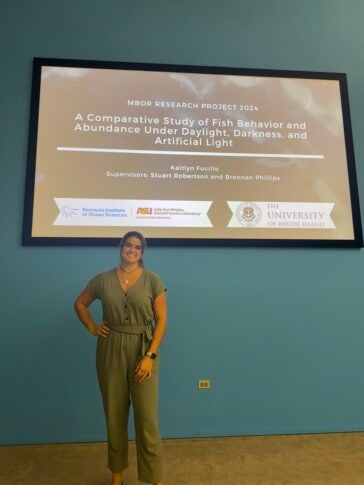
Though selecting a college during the pandemic was overwhelming, URI made a lasting impression. The virtual information sessions allowed her to connect with professors who clearly explained the opportunities available in ocean engineering.
Since childhood, she dreamed of making a difference in the world. “At URI, I’ve taken every opportunity to turn that dream into a plan. From interdisciplinary research and global travel to technical internships and fieldwork, I feel prepared and excited for what’s next,” said Fucillo.
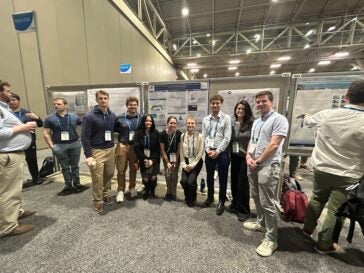
Once at URI, she continued to receive support that reassured her she made the best choice. “My academic advisor, Michael Lambert, went above and beyond to help me create a five-year plan that aligned with my goals—including graduating with my engineering degree in four years and completing my marine biology requirements through study abroad in Bermuda,” said Fucillo.
Fucillo was a member of URI’s Division I women’s rowing team during her freshman and sophomore years. “Rowing taught me discipline, teamwork, and time management—skills that proved invaluable throughout college,” she said. While she eventually stepped back to focus more on academics and research, the experience gave her a strong support network.
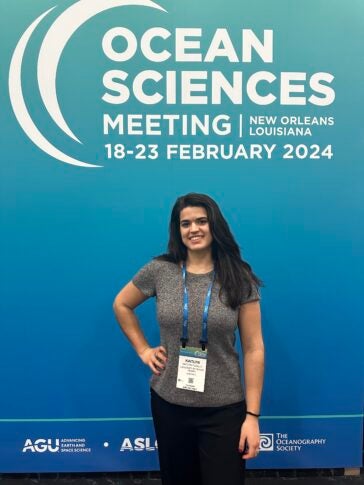
What set URI apart was the abundance of opportunities in ocean-related fields—and how accessible they are if you’re willing to get involved. “I participated in multiple study-abroad programs, contributed to meaningful undergraduate research, and even presented my capstone at the 2024 Ocean Sciences Meeting. I’ve found that URI empowers students to take initiative and shape their own unique path,” said Fucillo. She also earned her advanced open water diver certification and conducted research diving training in Bermuda. She also took a J-term coral reef ecology course in Bonaire, an island in the Caribbean. “It was an unforgettable experience,” she said.
She pursued several internships that connected classroom learning with real-world applications. At the Massachusetts Department of Transportation, she was an environmental engineering intern working on permitting regulations under the national and Massachusetts environmental policy acts. Later, she interned at LAUTEC, an international offshore wind consulting firm, where she authored technical white papers on software solutions for the offshore wind industry, and conducted her own research projects. Her independent research project centered around the offshore wind potential in Puerto Rico.
On campus, she also conducted research with professors M. Reza Hashemi and Christopher Baxter on ocean conditions impacting offshore wind farms, collaborating with teams from Tufts University and Woods Hole Oceanographic Institution. “This hands-on experience in data analysis and environmental modeling solidified my passion for offshore renewable energy—work I plan to continue as I pursue a master’s degree in offshore wind energy engineering at Tufts,” said Fucillo.
One of her favorite memories was studying abroad in Bermuda, where, by a stroke of luck, URI professor Brennan Phillips was on sabbatical. “I had taken classes with him before, and he invited me to assist with his fiberoptic shark-tagging reel project. I’ll never forget the moment we caught our ‘money shot’—the thrill of seeing all our hard work come to life in real time, out in the field. That memory reminds me why I chose this path in the first place,” said Fucillo.
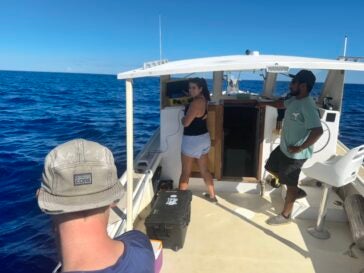
While studying abroad at the Bermuda Institute of Ocean Sciences, she led an independent research project on fish behavior under varying light conditions using low-light imaging technology. She authored a full research paper and presented it to peers and scientists, gaining confidence in fieldwork and scientific communication.
Throughout her time at URI, she consistently challenged herself with graduate-level courses in engineering and business. A standout class for her was Hacking for Oceans, an entrepreneurial course where her team developed a solution to a real-world marine problem that earned the top score in the class. (You can read more about their project on the here.)
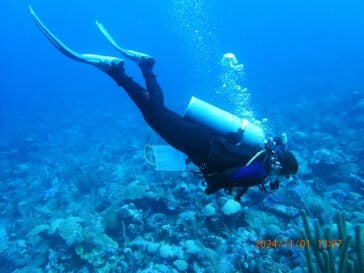
She was especially proud when her capstone team presented their poster at the 2024 Ocean Sciences Meeting in New Orleans. The poster is now displayed at URI.
This summer, she will be a teaching assistant for a remotely operated vehicle course for high school students at the Massachusetts Institute of Technology—a full-circle moment where she can mentor the next generation of ocean explorers. She will then begin her master’s degree program.
“I’m heading into my master’s program confident in my skills, inspired by my mentors, and ready to tackle the challenges ahead. Look out, world—I’m just getting started.”

